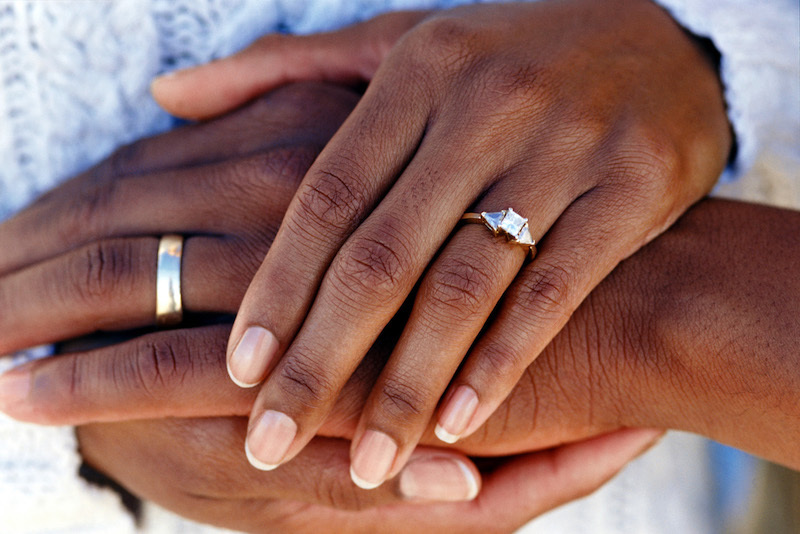Women are still bought to be brides. My sister-in-law was.

“You belong to me, therefore you are obligated to do whatever I want. I paid a fortune for you.”
I heard my own brother tell his wife this recently during an argument. My sister-in-law had asked my brother if she could go back to school; she got married at an early age before she could finish her education. My brother viewed this request as total nonsense, since he thinks that women who study or work cannot be as easily controlled. And the truth is, he does literally expect to control her as he does his other property because she was sold to and bought by our family; we paid a “lobola,” or bride price, for my sister-in-law to marry my brother.
The practice of paying a bride price occurs in multiple African countries, although exact traditions and levels of legality vary. In 2015, the Supreme Court of Uganda banned families from refunding bride prices in the event of a marriage’s dissolution, but the practice is still generally legal. In South Africa, the lobola payment remains a symbolic act through which a husband demonstrates that he is committed to caring for his wife. In my country, Zimbabwe, the bridegroom must pay his parents-in-law a lobola, known here as “roora,” for their marriage to be morally and socially tolerated and respected.
While some advocates want the practice to be eradicated, many Zimbabweans are still in favor of upholding the practice. Others propose maintaining but modifying it, such as having both the bride’s and groom’s parents pay lobola to each other, as a way to thank the other pair for raising their children well while ensuring that no one feels they own the other.
But despite popular opinion on the matter, there is still very real damage done to women as a result of the lobola. Young girls, especially those from impoverished families, are often forced by their parents to drop out of school and enter into early marriages because they are essentially seen as a source of income, comparable to a family’s cows or goats. Parents believe that their son-in-law should compensate them for the expenses incurred from bringing up their daughter, now his wife.
And, of course, there is the lobola’s link to domestic violence. My sister-in-law is hardly the only woman who found herself subjected to inhumane treatment by her new family after they paid a lobola for her. Multiple studies have linked the lobola payment with the experience of domestic violence. While this oppression often takes the form of physical and verbal abuse, it can also harm women by affecting their health and their right to make decisions about their own bodies. According to one 2017 study, the practice of lobola perpetuates male dominance in terms of sex because it is understood that men who pay lobola cannot be denied sex and have the right to set conditions for it. Husbands are given the right to decide on the number of, and spacing between, children. Even with the risk of HIV and other sexually transmitted infections, women who try to negotiate for safer sex with their husbands are often shamed, harassed, and beaten for such a request. For example, if a wife insists that her husband use a condom, he will likely become suspicious that she had an extramarital affair and is therefore afraid of passing on an STI; the possibility that she may want to protect herself from disease and/or pregnancy is not culturally accepted. As another 2016 study of the practice in the Bulawayo area of Zimbabwe found, many women “could not insist on the use of a condom by husbands … since, in most cases, the husbands argued that they have the final say on the use of condoms since they paid lobola.”
This violence violates Zimbabwe’s constitution, which states that “all laws, customs, traditions and cultural practices that violate the rights of women conferred by this Constitution are void to the extent of the infringement.” Zimbabwe also passed the Domestic Violence Act of 2007, which states that “any person who commits an act of domestic violence, physical abuse, sexual abuse or abuse derived from the cultural or customary rites or practices that discriminate against or degrade women shall be guilty and liable to punishment.” But laws alone cannot completely eradicate longstanding harmful cultural practices. Indeed, the practice of lobola is ultimately just one example of misogyny in a generally sexist culture. No matter if a lobola was paid or not, husbands and wives are not equal in Zimbabwe as well as many other African countries. Husbands make decisions, and wives are not allowed to stand up to their husbands. Advocates, feminists, and policy makers, therefore, still have a lot to do to reform lobola practice.
More articles by Category: Feminism, International
More articles by Tag: Africa, Gender Based Violence, Rape, Reproductive rights, Women of color


























